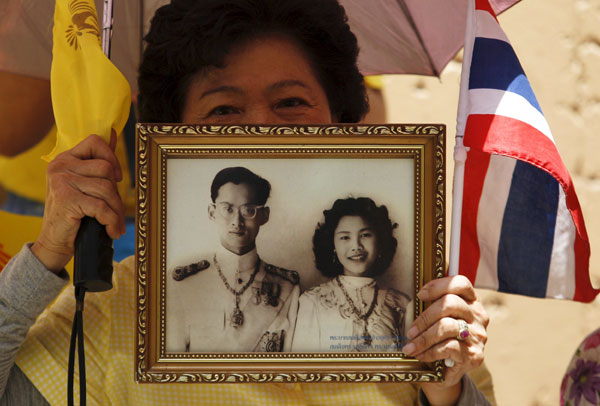Thai king leaves hospital after seven months
(Agencies) Updated: 2015-05-10 17:10
 |
|
A well-wisher holds up a picture of Thailand's King Bhumibol Adulyadej and Queen Sirikit at Siriraj Hospital in Bangkok, Thailand, May 10, 2015.[Photo/Agencies] |
The king has in the past intervened during Thailand's often messy political showdowns. In 2006, he called on judges to resolve a pending constitutional crisis.
Months later, populist Prime Minister Thaksin Shinawatra was ousted in a September coup by the army.
Thailand has been broadly split along north-south political lines since Thaksin's ouster. A bastion of the conservative, pro-establishment Democrat Party, southern Thailand historically hosts much of the country's wealth and tourism.
The poorer, agrarian north and northeast, where Thaksin's populist policies won him legions of supporters, remain Shinawatra strongholds.
Thaksin is loathed by the royalist elite who accuse him of undermining the monarchy and of graft, accusations he denies.
Thaksin's younger sister, former Prime Minister Yingluck Shinawatra, was removed from office last May, days before the army staged the coup aimed at restoring order after months of street protests.






